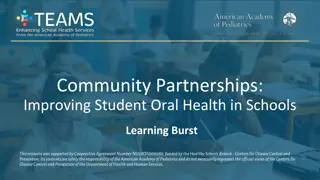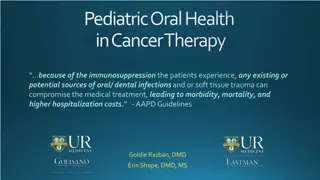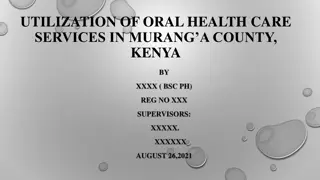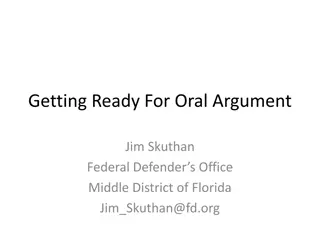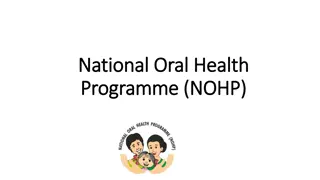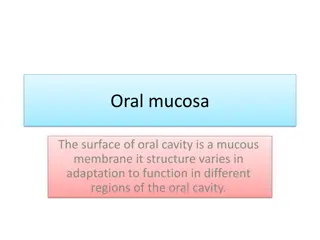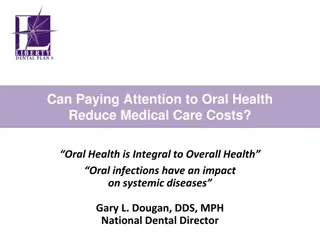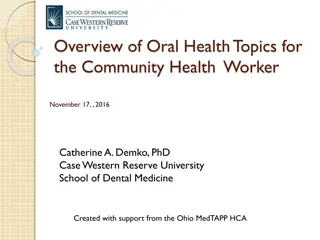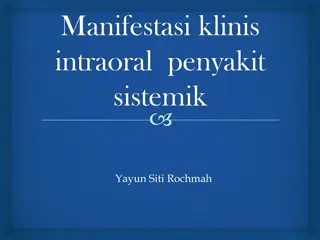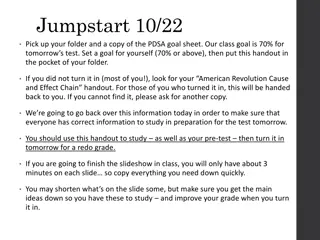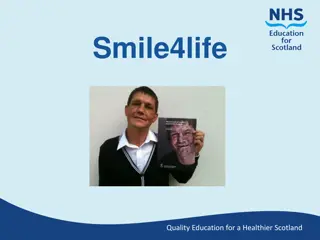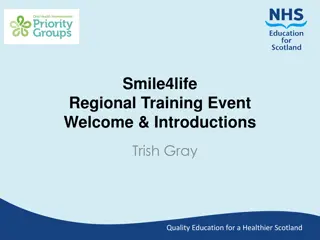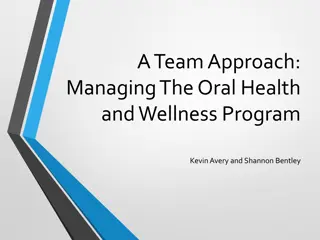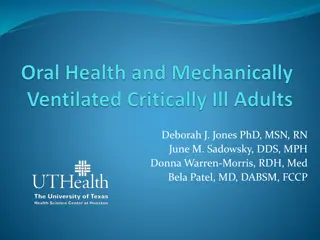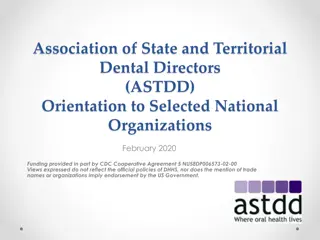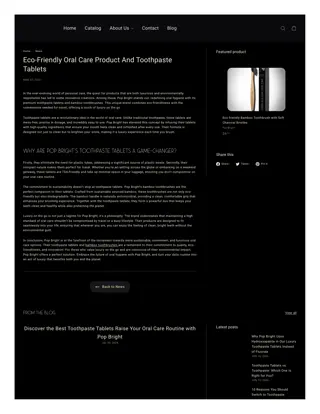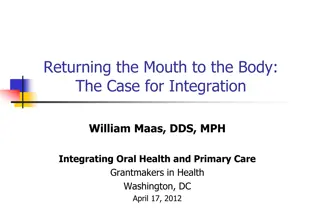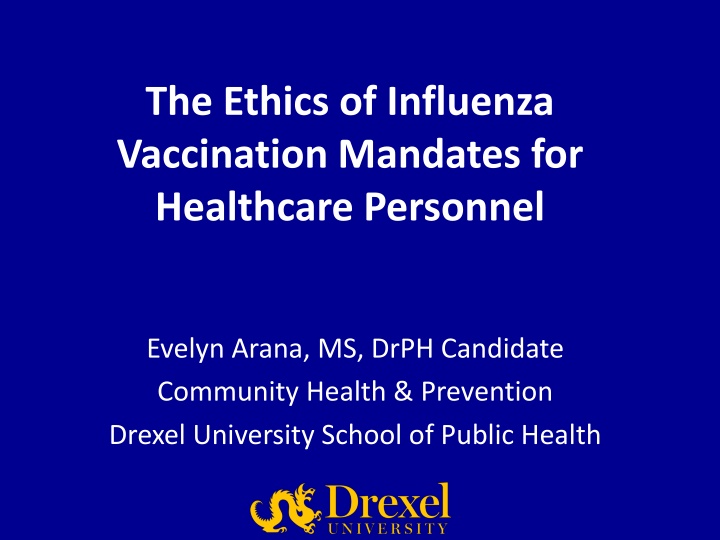
Ethics of Influenza Vaccination Mandates for Healthcare Personnel
Explore the ethics and considerations surrounding influenza vaccination mandates for healthcare personnel. Understand the importance of mandates, current policy types, and the morality behind flu vaccine mandates. Dive into different models and ethics related to opt-in and opt-out approaches in healthcare settings.
Uploaded on | 2 Views
Download Presentation

Please find below an Image/Link to download the presentation.
The content on the website is provided AS IS for your information and personal use only. It may not be sold, licensed, or shared on other websites without obtaining consent from the author. If you encounter any issues during the download, it is possible that the publisher has removed the file from their server.
You are allowed to download the files provided on this website for personal or commercial use, subject to the condition that they are used lawfully. All files are the property of their respective owners.
The content on the website is provided AS IS for your information and personal use only. It may not be sold, licensed, or shared on other websites without obtaining consent from the author.
E N D
Presentation Transcript
The Ethics of Influenza Vaccination Mandates for Healthcare Personnel Evelyn Arana, MS, DrPH Candidate Community Health & Prevention Drexel University School of Public Health
Presenter Disclosures The following personal financial relationships with commercial interests relevant to this presentation existed during the last 12 months: - I have no relationships to disclose
Collaborators Funder: Oak Ridge Institute for Science and Education (ORISE) Contract #301581 Project Collaborators: Arthur Caplan, Drs. William F and Virginia Connolly Mitty Chair Director, Division of Medical Ethics, NYU Langone Medical Center Esther Chernak, Director, Center for Public Health Readiness and Communication, Drexel University School of Public Health Nina Blank, Cornell University Medical School Robert Field, Professor of Law and Professor of Health Management and Policy, School of Law and School of Public Health, Drexel University Michael Yudell, Interim Chair and Associate Professor, Director for Program for Public Health Ethics and History, Drexel University School of Public Health
Why Mandates? 75.2% of Healthcare Personnel (HCP) were vaccinated for the 2013-14 flu season We know mandates can be effective in terms of vaccine coverage of HCP The National Vaccine Advisory Committee (NVAC) recommends Healthcare Employers (HCE) to strongly consider an influenza vaccine mandate
Current Types of Mandate Policies Policies threatening dismissal or disciplinary action Policies with consequences other than termination and disciplinary action Policies without consequences for vaccine refusal
The Morality of Flu Vaccine Mandates Different models/different ethics Opt-in : was the more traditional approach No HCP can be compelled to accept any medical intervention against his will Opt-out : now favored over opt-in HCP who refuse vaccination are required to sign a declination form
Ethics of Working in a Healthcare Setting Restriction can be placed on HCP s right to accept or refuse medical interventions HCP can be required to have personal liberty restricted in name of patient safety Moral presumption of individual rights trumped by need to protect health of others
Prioritizing Patients It s about prioritizing the health of patients over providers Clearly stated in various healthcare codes of ethics Vaccination does also protect HCP from infection
Do No Harm All HCP are obligated to honor the core medical ethics principle of Do No Harm There is some evidence that in care homes and long-term care facilities (LTCF), nosocomial transmission is reduced. Thus, a fundamental moral requirement demands that those in care-giving roles treat vaccination as obligatory
Duty to Protect HCP have a distinct duty toward those who are especially susceptible to flu who cannot protect themselves through vaccination and/or are more susceptible to flu HCP vaccination against flu and other communicable diseases is an important step in fulfilling this duty
Acting as an Example By not being vaccinated, HCP fuel existing fears about vaccines, reinforce anti-vaccine sentiments, and set a poor example for the public. By getting vaccinated, healthcare workers provide a virtuous example to the public
Vaccine Effectiveness Even with a comparatively lower efficacy, influenza vaccination can help prevent flu transmission to individuals who are unlikely to benefit from direct vaccination themselves Reduced efficacy does nothing to change the fact that flu vaccines pose very little harm to recipients and are more effective the more people are vaccinated
A Patients Right to Know If HCP are exempt from vaccination and has exposure to patients, thereby putting patients at risk, patients have a right to request another HCP. But patients DO NOT have the right to know the vaccination status of other patients and hospital visitors.
Informing HCP Ethical responsibility on healthcare institutions to inform HCP about: the risks of influenza vaccination the risks that non-vaccination may place upon the health care setting any potential penalties for refusers Balances coercive nature of this policy with an obligation to inform and educate this population
Ethics of Dismissal or Disciplinary Action Do penalties for vaccine refusal violate HCP autonomy? In the context of public health ethics, which seeks to ensure the health and safety of the population, such sacrifices of autonomy in the name of paternalism may be justified
Summary Influenza vaccination mandated for all HCP is ethically justifiable based on four key principles: the professional duty to prioritize patients interests above all else; the obligation to do no harm ; the requirement to protect those who cannot protect themselves; and the obligation to set a good example for the public.
Summary: Obligation to Educate HCP Occupational health programs should include an educational program for all HCP (new and existing employees) that address the need for vaccination as a condition of employment, and the logic of required vaccination to protect vulnerable patients as well as employee health.
Summary: Provide Easy Access to Vaccines Because of the burden placed on HCP autonomy, influenza vaccination (and other vaccinations) should be provided free of charge to HCP, and all healthcare facilities (including acute care, behavioral, outpatient, etc.) should make immunization available for staff at convenient times and places.
Summary: Data on Effectiveness There is an ethical duty on the part of health care facilities to provide data assessing the effectiveness as well as the costs and benefits of healthcare worker vaccine mandates. Government agencies as well as insurers and other third-party payers should provide funding to healthcare facilities so that evaluation efforts can be integrated into healthcare facility infection control programs.

